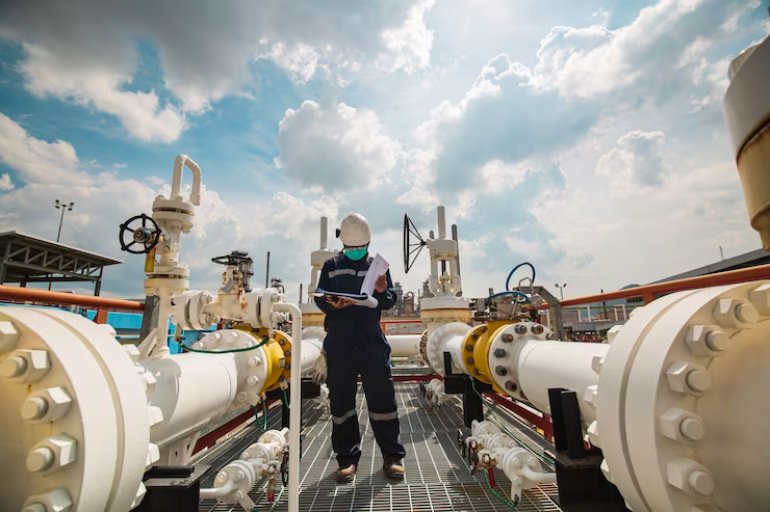The Crucial Role of Hydrogen Valves in Industrial Applications

About Hydrogen Valves
In the ever-evolving landscape of industrial technology, the pursuit of
cleaner and more sustainable energy solutions has become paramount. Among
the various alternatives, hydrogen stands out as a promising candidate due
to its abundance and eco-friendliness. As industries increasingly adopt
hydrogen as a viable energy source, the role of hydrogen valves emerges as a critical components in ensuring safe and efficient operations.
Hydrogen, often referred to as the "fuel of the future," presents a unique
set of challenges and opportunities in industrial applications. Unlike
traditional fossil fuels, hydrogen is clean-burning, producing only water
vapor and heat when combusted, making it an attractive option for reducing
greenhouse gas emissions. Its versatility extends beyond energy generation,
with applications ranging from transportation and power generation to
chemical production and beyond.
However, harnessing the potential of hydrogen requires careful consideration
of its properties and behaviors, especially concerning safety and
reliability. This is where hydrogen valves come into play, serving as
essential control mechanisms in various industrial processes involving
hydrogen.
At the heart of hydrogen valve technology lies the need to manage hydrogen's
inherent characteristics, including its low density, high diffusivity, and
potential for embrittlement of materials. Hydrogen valves are meticulously
designed and engineered to withstand these unique challenges while
maintaining precise control over flow rates, pressures, and temperatures.
One of the primary functions of hydrogen valves is to regulate the flow of
hydrogen within industrial systems. Whether it's controlling the input of
hydrogen into fuel cells for power generation or managing the distribution
of hydrogen in refining processes, these valves play a crucial role in
ensuring optimal performance and efficiency.
Safety is paramount in any industrial setting, especially when dealing with
a highly flammable substance like hydrogen. Manufacturers of Hydrogen valves are equipped
with advanced safety features such as pressure relief mechanisms, leak
detection systems, and fail-safe designs to mitigate the risk of accidents
and ensure the integrity of the overall system.
In addition to safety considerations, hydrogen valve suppliers and manufacturers also contribute to the
overall reliability and longevity of industrial equipment. The corrosive
nature of hydrogen can pose significant challenges to traditional valve
materials, leading to premature failure and costly downtime. To address this
issue, specialized materials such as stainless steel and advanced polymers
are often employed in hydrogen valve construction, ensuring durability and
performance in hydrogen-rich environments.
Moreover, advancements in valve technology, such as the integration of smart
sensors and actuators, enable real-time monitoring and control of hydrogen
systems, optimizing efficiency and minimizing downtime. These intelligent
valves can detect anomalies, adjust operating parameters, and communicate
crucial data to operators, facilitating proactive maintenance and
troubleshooting.
The role of hydrogen valves extends beyond traditional industrial
applications, encompassing emerging sectors such as hydrogen fueling
stations for transportation. As hydrogen-powered vehicles gain traction as a
sustainable alternative to conventional automobiles, the demand for reliable
and efficient hydrogen valves to support refueling infrastructure becomes
increasingly significant.
Functionality of Hydrogen Valves
Hydrogen valves are engineered to meet the unique requirements of hydrogen
applications, offering robust performance and reliability in demanding
industrial environments. These valves come in various types and
configurations, each designed to fulfill specific functions within a
hydrogen system:
Shut-off Valves: These valves are designed to completely stop the flow of
hydrogen when necessary, providing an essential safety measure in case of
emergencies or system maintenance.
Control Valves: Control valves regulate the flow rate and pressure of
hydrogen within a system, allowing for precise adjustment to meet
operational requirements while maintaining optimal efficiency.
Check Valves: Check valves prevent the backflow of hydrogen, ensuring that
it moves in the intended direction and preventing contamination or damage to
upstream equipment.
Pressure Relief Valves: In situations where hydrogen pressure exceeds safe
limits, pressure relief valves automatically release excess pressure to
prevent system overpressure and potential hazards.
Safety Valves: Similar to pressure relief valves, safety valves provide an
additional layer of protection by relieving excess pressure to safeguard
against equipment failure or catastrophic events.
Conclusion
In the journey towards a more sustainable and energy-efficient future,
hydrogen stands out as a key enabler of progress across various industrial
sectors. However, harnessing the full potential of hydrogen requires
meticulous attention to safety and efficiency, where hydrogen valves play a
vital role. By regulating hydrogen flow with precision and reliability,
these valves ensure the secure and optimized operation of industrial
processes, paving the way for a safer, cleaner, and more sustainable future.
As the demand for hydrogen continues to rise, manufacturers and suppliers
worldwide are poised to innovate and collaborate, driving further
advancements in hydrogen valve technology and expanding its impact on
industrial applications. Among these innovators, Oswal Industries Limited
emerges as a trusted hydrogen valve manufacturer and supplier, offering
cutting-edge solutions that prioritize safety, efficiency, and reliability,
contributing to the ongoing evolution of hydrogen technology in industrial
settings.
